
Stefan Zweig was an Austrian writer. At the height of his literary career, in the 1920s and 1930s, he was one of the most widely translated and popular writers in the world.
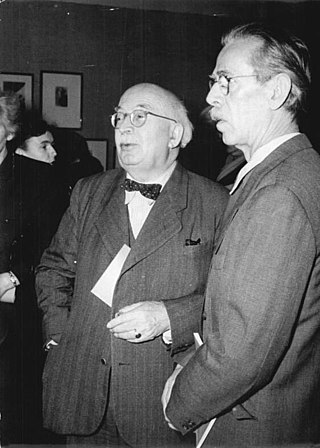
Arnold Zweig was a German Jewish writer, pacifist and socialist. He is best known for his six-part cycle on World War I.

The Cultural Association of the GDR was a federation of local clubs in the German Democratic Republic (GDR). It formed part of the Socialist Unity Party-led National Front, and sent representatives to the Volkskammer. The association had numerous writers as its member, including Willi Bredel, Fritz Erpenbeck, Bernhard Kellermann, Victor Klemperer, Anna Seghers, Bodo Uhse, Arnold Zweig. Its first chairman was Johannes Robert Becher.
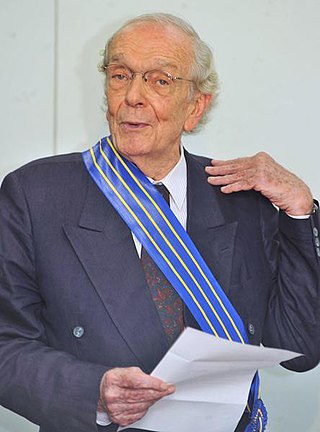
Alberto Dines was a Brazilian journalist and writer.
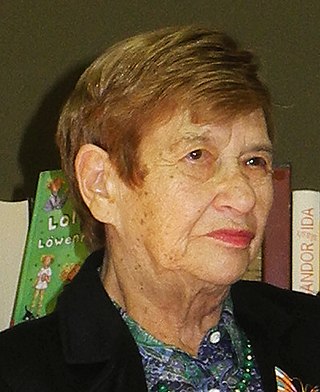
Stefanie Zweig was a German Jewish writer and journalist. She is best known for her autobiographical novel, Nirgendwo in Afrika (1995), which was a bestseller in Germany. The novel is based on her early life in Kenya, where her family had fled to escape persecution in Nazi Germany. The film adaptation of the novel (2001) won the Academy Award for Best Foreign Language Film. Her books have sold more than seven million copies, and have been translated into fifteen languages.
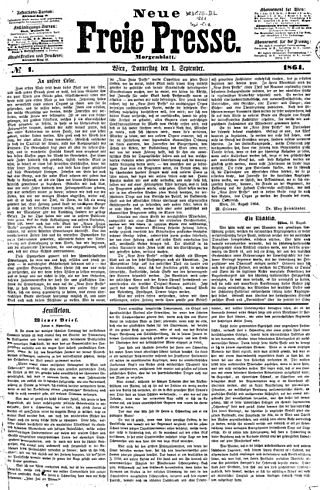
Neue Freie Presse was a Viennese newspaper founded by Adolf Werthner together with the journalists Max Friedländer and Michael Etienne on 1 September 1864 after the staff had split from the newspaper Die Presse. It existed until January 31, 1939. Werthner was president of Oesterreichischen Journal-Aktien-Gesellschaft, the business entity behind the newspaper.
Simon Lang is the pen name of science fiction writer, speaker, and grandmother Darlene Artell Hartman. Her principal works are the "Einai series".

The Nazi book burnings were a campaign conducted by the German Student Union to ceremonially burn books in Nazi Germany and Austria in the 1930s. The books targeted for burning were those viewed as being subversive or as representing ideologies opposed to Nazism. These included books written by Jewish, half-Jewish, communist, socialist, anarchist, liberal, pacifist, and sexologist authors among others. The initial books burned were those of Karl Marx and Karl Kautsky, but came to include very many authors, including Albert Einstein, Helen Keller, writers in French and English, and effectively any book incompatible with Nazi ideology. In a campaign of cultural genocide, books were also burned en masse by the Nazis in occupied territories, such as in Poland.

Reclam Verlag is a German publishing house, established in Leipzig in 1828 by Anton Philipp Reclam (1807–1896). It is particularly well known for the "little yellow books" of its Universal-Bibliothek, simple paperback editions of literary classics for schools and universities.
Cedar Paul, néeGertrude Mary Davenport was a singer, author, translator and journalist.

The Casa Stefan Zweig is legally regarded as a private charitable organisation, which was founded in 2006 by a group of interested private donors, to establish a writer's house museum, that is dedicated to the author, in the last residence of Stefan Zweig and his wife in Petrópolis (Brazil).
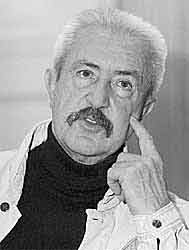
Egon Günther was a German film director and writer.
German Exilliteratur is the name for works of German literature written in the German diaspora by refugee authors who fled from Nazi Germany, Nazi Austria, and the occupied territories between 1933 and 1945. These dissident writers, poets and artists, many of whom were of Jewish ancestry or held anti-Nazi beliefs, fled into exile in 1933 after the Nazi Party came to power in Germany and after Nazi Germany annexed Austria by the Anschluss in 1938, abolished the freedom of press, and started to prosecute authors and ban works.

Confusion, also known in English under the titles Confusion of Feelings or Episode in the Early Life of Privy Councillor D. is a 1927 novella by the Austrian writer Stefan Zweig. It tells the story of a student and his friendship with a professor. It was originally published in the omnibus volume Conflicts: Three Tales, together with two other Zweig novellas, Twenty-Four Hours in the Life of a Woman and Untergang eines Herzens. It was included on Le Monde's 100 Books of the Century list.

Fear is a 1925 novella by the Austrian writer Stefan Zweig. It was adapted into a 1928 silent film, Angst, directed by Hans Steinhoff, a 1936 film, La Peur, directed by Victor Tourjansky, and a 1954 film, Fear, directed by Roberto Rossellini.

Stefan Zweig: Farewell to Europe is a 2016 internationally co-produced drama film directed by Maria Schrader. It was listed as one of eight films that could be the German submission for the Best Foreign Language Film at the 89th Academy Awards, but it was not selected. However, it was later chosen as the Austrian entry for the Best Foreign Language Film at the 89th Academy Awards, but it was not nominated.
Kraków School of Economics, also known as the Kraków School or KSE was a school of economic thought centred around the Jagiellonian University and most prominent in interwar Poland. The school was critical of economic interventionism and statism prominent during the sanation and instead favoured free markets and free trade.

Friederike Bertha Helene Weyl née Joseph was a German writer and translator. She was married to the mathematician Hermann Weyl.













